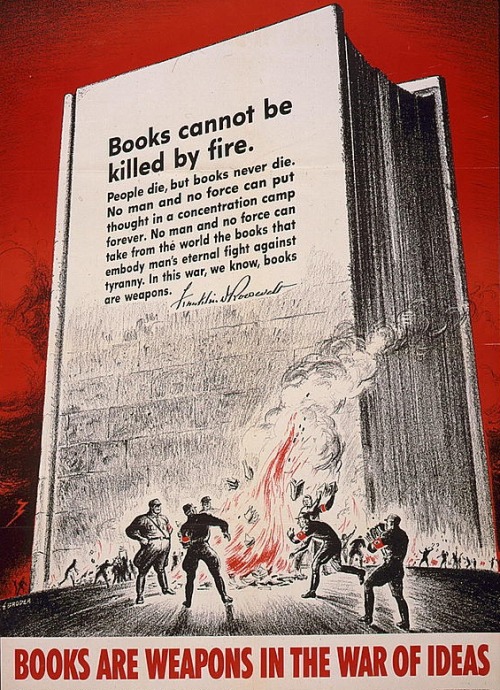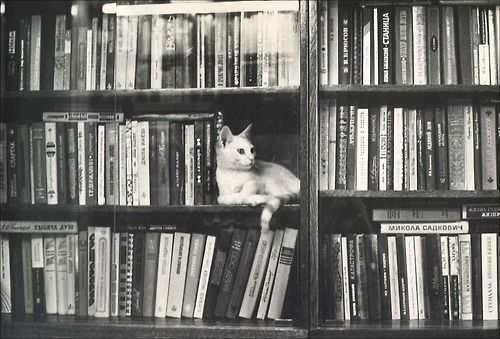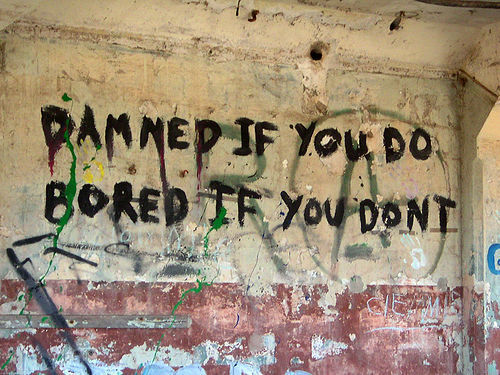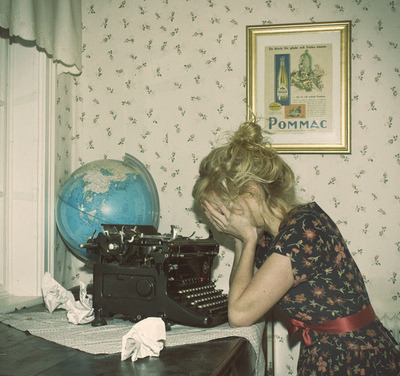Monday, November 01, 2010
Suicide Girls Talk To Me
It may be an oldie but it's still a very goodie ... and it's also another bit of Bachelor Machine publicity: an interview with yers truly by no less than the Suicide Girls Web site!
Sunday, October 31, 2010
The Bachelor Machine - The Cover!
As part of my spew of desperate self-aggrandisement for the release of The Bachelor Machine (new edition), let me give a huge, and very well-deserved, THANKS to my pal and a magnificent artist, Wynn Ryder, who did the wonderful cover. As a treat, here's also a look at an early version of the new cover as well:
Saturday, October 30, 2010
Thursday, October 28, 2010
Clean Sheets Loves The Bachelor Machine
In celebration of the release of my brand-new edition of my science fiction erotica collection, The Bachelor Machine, from Circlet Press, here's a rave review of the original book by William Dean, from Clean Sheets:
When mega-names in the science fiction world like Mike Resnick and Paul Di Filippo praise your work, you know you've gone supernova. When someone like Cecilia Tan writes the introduction for your latest collection, you know the included tales are white hot, sensual, and as erotic as it gets. Such are the credentials, among others, of M. Christian's just published The Bachelor Machine.
After an uncertain time, their moans and cries and incoherent bursts of near-speech, near-philosophical-balderdash, synched perfectly then climbed, a pair of syncopated screams, toward a deity that they hoped to perhaps outdo with their engineered divinity, their mechanical savior.The machines, the bio-engineered, the alien, and the passionate humans in this collection of stories are, indeed, on a trip to tomorrow where the lusting may not always be easy, but the resulting orgasms are transcendent. I haven't read such syncopated prose since Filippo's The Steampunk Trilogy nor such riffing sensual descriptions since Samuel R. Delaney's now classic Dahlgren. M. Christian here writes, as Cecilia Tan says, like jazz, improvising on themes and taking the mind on a light-speed journey into the human erotic psyche and beyond.
Too often, science fiction can drag with polemic pseudo-dogmas or the hackneyed plots of space westerns with a lone hero standing tall against phantasmal enemies. You'll find nothing like that in The Bachelor Machine. Instead, your erotic particles will be deconstructed, sped up incredibly, and collided with a vision of sex and sensuality that is Tantric in scope.
She was beautiful. Stretched out on her huge bed, a midnight expanse that all but filled her bedroom, she looked up at me with huge earthen eyes -- lit by quivering desire, a pulse-pounding fever. Her mouth was on my right nipple, painting it with the gleam of her wet lips, making it harden almost to the point of pain. I felt the ghostly nipping of her white, white teeth. Then she really sucked, and I felt my legs turn to rubber and my cunt get heavy, wet, and hot.Like all fine quality erotica, The Bachelor Machine goes past outdated concepts of gender and identity and sends its exploratory probes into the core of sexuality and desire, deep beneath the surface we normally skim across in our day-to-day imaginings. This is the territory of off-world living, cosmic, and magical. While the high-tech bits are fascinating in their own right, it is in their union with the erotic impulse where the reader finds his or her ordinary orbit shifted. Odd, even bizarre, circumstances evolve into encounters that challenge the characters' notions of love and want, self and partner, genitals and psyche.
In my hand, the crop was light, all but intangible.
The sender was a flaming hot number in the cybersea, a dominatrix icon that played games with the boys' heads, and played them ultimately well, and safe. She'd earned, not taken, her ID: bytebitch. She wasn't a girlie milking her tits for all the drooling boys. She was a hard dealer -- no-nonsense and straight. They didn't like that, expecting sugar and spice, not razors and sure, clear percentages.Jump into the slipstream of The Bachelor Machine and M. Christian will take you for a joyride -- down into the places where nanoseconds seem to last an eternity and the orgasms are as big as Jupiter. Strap yourself on his rocket ship of soaring prose and fantastic plot, where your co-pilots have any gender, all gender and whose mission is to leave you breathless with desire and safely exhausted with satiation. Let The Bachelor Machine speed you on your way...
I think, I dream, I wish -- but it's not even a memory, because I'm not allowed any. I stretch out on my simple bed, in my simple flat, and spin my wishes of what they might be like, their faces, their rough hands, their cruel implements, their...cocks, in my mouth, in my hands, in my so-wet cunt. I think, I dream, I wish...
Wednesday, October 27, 2010
Listen to The How To Sell Erotica Panel!
How to Sell Erotica is a live recording of a panel discussion featuring five respected and best selling erotic authors, editors, and professionals presented at San Francisco's Center for Sex and Culture under the auspices of Sizzler Editions. It is presented free to anyone interested in learning the ins and outs of writing and selling erotic fiction at SizzlerEditions.com.
If you're interested in writing erotica for fun or, yes, even money, this is a wonderful opportunity to learn all there is to learn about creating sexually explicit stories, dealing with editors and publishers, how to bring sex and sensuality to life in your work, plus all kinds of tips and tricks, and much, much more!
The panelists at this entertaining and informative event were:
- Donna George Storey, a writing and book promotion columnist.
- Blake C. Aarens, who writes award-winning erotic fiction.
- M. Christian, writer and anthologist who has sold over 300 short stories, five novels and edited over two dozen anthologies.
- Gina de Vries, whose fiction, journalism, memoir, and smut have appeared in dozens of anthologies.
- Jean Marie Stine, author, former magazine editor, and publisher of the erotic ebook pioneer Sizzler Editions.
Topics discussed by these respected erotic professionals include:
- How did you sell the first story you got paid for?
- What elements make an erotic story sell?
- What are the easiest markets to break into?
- How do you dream up sexy story ideas and sexy scenes?
- What's the right amount of sex in a sexy story?
- Is it possible to write convincing stories for sexual orientations and interests beyond your own? If not, why not? And if so, how do you do it?
- What Internet resources for writers of erotica would you recommend?
- Any thoughts on how to get along well with editors and publishers? Do's? Don't's?
- Have you ever experienced negative reviews or criticism from fans? If so, how do you deal with it?
- Have you ever sold the same story more than once? If so, what is the most times you have ever sold one story?


Out Now: THE BACHELOR MACHINE By M.Christian
THE BACHELOR MACHINE
Science Fiction Erotica
A Brand New Edition
Out Now From M.Christian!
Science Fiction Erotica
A Brand New Edition
Out Now From M.Christian!
M.Christian and Circlet Press are proud to announce the publication of a brand new edition of M.Christian's best-selling and ground-breaking collection of science fiction erotica: The Bachelor Machine!
Now available in ebook for the first time, 18 short stories of crackling erotic futures by the master of erotic voice, M. Christian. Men, women, hackers, derelicts, enforcers, hustlers, and whores in every combination inhabit the streets and beds and back alleys of Christian's imagination. This is erotic science fiction at its best.
Included in this new edition, in addition to Cecilia Tan's rave introduction to M.Christian's work from the original book, is a special foreword by Kit O'Connell, a chat between Cecilia Tan and M.Christian on mixing science fiction and erotica, and much more!
I’m going to tell you a secret. There are only two people in the world I envy. One is the late Roger Zelazny, whose talent for an almost jazz improvisational way of writing I could never match.The other is M. Christian, for writing exactly what I’d write if only I could get off my ass. Which is to say, raunchy hallucinatory sexfuture dreams that never fail to arouse me and kick me in the gut at the same time ...
- Cecilia Tan, from her original introduction
In the years since I first read The Bachelor Machine, I've shared these thought-provoking tales with many friends. The stories have never failed to provoke both reaction and discussion. Long after arousal is gone, there are stories here that haunt me. I'm glad that now you can share that too ...
- Kit O'Connell, from his foreword to the new edition
The stories in his new collection, The Bachelor Machine, pass the litmus tests of both the SF and erotica genres. Take out the tech and there’s no story; take out the sex and there’s no story. This description may lead those unfamiliar with SF erotica to suspect that every story is about getting off with the aid of futuristic technologies, and that’s true as far as it goes. But that’s not going nearly far enough. The stories in The Bachelor Machine are not about sex, though they’re stuffed with sexual acts; the stories are about what sex means. M.Christian is writing about the psychology of being human, and he often does so by exploring sexual possibilities and realities that are rarely discussed, even in private conversation. He not only thinks forbidden thoughts, he extrapolates them in the finest SF fashion ...
- Cynthia Ward, Locus On-line
- Cecilia Tan, from her original introduction
In the years since I first read The Bachelor Machine, I've shared these thought-provoking tales with many friends. The stories have never failed to provoke both reaction and discussion. Long after arousal is gone, there are stories here that haunt me. I'm glad that now you can share that too ...
- Kit O'Connell, from his foreword to the new edition
The stories in his new collection, The Bachelor Machine, pass the litmus tests of both the SF and erotica genres. Take out the tech and there’s no story; take out the sex and there’s no story. This description may lead those unfamiliar with SF erotica to suspect that every story is about getting off with the aid of futuristic technologies, and that’s true as far as it goes. But that’s not going nearly far enough. The stories in The Bachelor Machine are not about sex, though they’re stuffed with sexual acts; the stories are about what sex means. M.Christian is writing about the psychology of being human, and he often does so by exploring sexual possibilities and realities that are rarely discussed, even in private conversation. He not only thinks forbidden thoughts, he extrapolates them in the finest SF fashion ...
- Cynthia Ward, Locus On-line
As a special treat, here's an interview with M.Christian from the Suicide Girl's Web site about The Bachelor Machine!
And The Bachelor Machine has its own Wikipedia page!
Here's what others are saying about M.Christian and The Bachelor Machine:
M.Christian speaks with a totally unique and truly fascinating voice. There are a lot of writers out there who'd better protect their markets!
- Mike Resnick, Hugo and Nebula Award-winning science fiction author
M.Christian's stories squat at the intersection of Primal Urges Avenue and Hi-Tech Parkway like a feral-eyed, half-naked Karen Black leering and stabbing her fractal machete into the tarmac. Portraying a world where erotic life has spilled from the bedroom into the street, and been shattered into a million sharp shards, these tales undercut and mutate the old verities concerning memory, desire and loyalty. Truly an author for our post-everything 21st century.
- Paul Di Filippo, author of The Steampunk Trilogy, and reviewer for Issac Asimov's Science Fiction Magazine.
Fantasist, futurist, eroticist, satirist, humorist, dentist drilling deep into the nerves of the here and now ... M. Christian wears a lot of hats in this multifaceted collection, and they're all a splendid fit.
- Brian Hodge, author of Mad Dogs and Lies & Ugliness
M. Christian is the chameleon of modern erotica. One day punk, another romantic; one day straight, another totally perverse and polyamorous. But always sexy and gripping.
- Maxim Jakubowksi, editor of the Mammoth Book of Erotica series
M. Christian is a chimera, an amazing combination of tour guide and magician. Whether he's writing science fiction, horror, or erotica, he can take you to places you've never imagined, show you sights no-one else will get to see, introduce you to some fascinating people, and guarantee that the trip will be memorable from start to finish. Buy a ticket and fasten your seat belt: you're in for a wild ride!
- Stephen Dedman, author of The Art of Arrow Cutting, and Shadows Bite
M. Christian always writes like a dream whether he's creating fantastic visions or ghastly nightmares. With this collection, you get both!
- Paula Guran, DarkEcho
Jump into the slipstream of The Bachelor Machine and M.Christian will take you for a joyride - down into the places where nanoseconds seem to last an eternity and the orgasms are as big as Jupiter. Strap yourself on his rocket ship of soaring prose and fantastic plot, where your co-pilots have any gender, all gender and whose mission is to leave you breathless with desire and safely exhausted with satiation. Let The Bachelor Machine speed you on your way ...
- William Dean, Clean Sheets
- Mike Resnick, Hugo and Nebula Award-winning science fiction author
M.Christian's stories squat at the intersection of Primal Urges Avenue and Hi-Tech Parkway like a feral-eyed, half-naked Karen Black leering and stabbing her fractal machete into the tarmac. Portraying a world where erotic life has spilled from the bedroom into the street, and been shattered into a million sharp shards, these tales undercut and mutate the old verities concerning memory, desire and loyalty. Truly an author for our post-everything 21st century.
- Paul Di Filippo, author of The Steampunk Trilogy, and reviewer for Issac Asimov's Science Fiction Magazine.
Fantasist, futurist, eroticist, satirist, humorist, dentist drilling deep into the nerves of the here and now ... M. Christian wears a lot of hats in this multifaceted collection, and they're all a splendid fit.
- Brian Hodge, author of Mad Dogs and Lies & Ugliness
M. Christian is the chameleon of modern erotica. One day punk, another romantic; one day straight, another totally perverse and polyamorous. But always sexy and gripping.
- Maxim Jakubowksi, editor of the Mammoth Book of Erotica series
M. Christian is a chimera, an amazing combination of tour guide and magician. Whether he's writing science fiction, horror, or erotica, he can take you to places you've never imagined, show you sights no-one else will get to see, introduce you to some fascinating people, and guarantee that the trip will be memorable from start to finish. Buy a ticket and fasten your seat belt: you're in for a wild ride!
- Stephen Dedman, author of The Art of Arrow Cutting, and Shadows Bite
M. Christian always writes like a dream whether he's creating fantastic visions or ghastly nightmares. With this collection, you get both!
- Paula Guran, DarkEcho
Jump into the slipstream of The Bachelor Machine and M.Christian will take you for a joyride - down into the places where nanoseconds seem to last an eternity and the orgasms are as big as Jupiter. Strap yourself on his rocket ship of soaring prose and fantastic plot, where your co-pilots have any gender, all gender and whose mission is to leave you breathless with desire and safely exhausted with satiation. Let The Bachelor Machine speed you on your way ...
- William Dean, Clean Sheets
About M.Christian:
M.Christian is - among many things - an acknowledged master of erotica with more than 300 stories in such anthologies as Best American Erotica, Best Gay Erotica, Best Lesbian Erotica, Best Bisexual Erotica, Best Fetish Erotica, and many, many other anthologies, magazines, and Web sites. He is the editor of 25 anthologies including the Best S/M Erotica series, The Burning Pen, Guilty Pleasures, The Mammoth Book of Future Cops and The Mammoth Book of Tales of the Road (with Maxim Jakubowksi) and Confessions, Garden of Perverse, and Amazons (with Sage Vivant) as well as many others. He is the author of the collections Dirty Words, Speaking Parts, Licks & Promises, Filthy, Love Without Gun Control, Rude Mechanicals, and Coming Together Presents M.Christian; and the novels Running Dry, The Very Bloody Marys, Me2, Brushes, and Painted Doll.
The Bachelor Machine
Circlet Press
ASIN: B003Y8XUK2
ebook/Kindle Edition
$7.99
Please contact M.Christian at zobop@aol.com for a review copy
Tuesday, October 26, 2010
Monday, October 25, 2010
Saturday, October 23, 2010
Dark Roasted Biscotti
Here's another of my takes on doing a Biscotti for the always-wonderful Dark Roasted Blend. I have to say these are a real kick and a treat to put together!
Monday, October 18, 2010
Dark Roasted M.Christian
Check it out: a brand new Dark Roasted Blend piece I did just went up: this time about old typewriters - especially the marvelous Malling-Hansen Writing Ball.

Horse and buggies, hoop skirts, steam engines, bustles ... oh, yes, life around the turn of the previous century was a delight of simplicity and workmanship. But that doesn't mean that the artisans and engineers of way-back-when didn’t at least have their hearts and minds in the right place.
Take, for example, what writing used to be like before a few very bright bulbs thought to create machines to make it easier: pens that constantly ran dry, ink that spilled or smeared, illegible handwriting ... getting the message across -- any message across -- by hand was problematic at best, totally confusing at worst.
One of the earliest of those bright bulbs was William Austin Burt who, in 1829, created what he called a 'typewritor.' If Burt's machine was the first is a matter of much debate as another, similar, machine had also built by Pellegrino Turri around the same time. Some even say the crown of 'first' should go to Henry Mill, who created a writing machine way back in 1714.
But all of these devices were just baby steps: more potential than actually being helpful to people whose job it was to be clear, concise and fast with their writing. There were a lot of others after them these early pioneers, but none of them were ever a real commercial success. Looking at them you can see why: in many of these very early models – called 'index typewriters,' by the way – the typing was done by selecting the letter to be used on a slider and then pressing it against the paper. To call these early monsters 'slow' is being kind. Changing the alphabetical slider to a disc version helped a bit but not enough to make any of these machines easy or popular.
In 1865, what many consider to be the true ancestor to the first true, efficient, and financially successful was developed by Rasmus Malling-Hansen: The Writing Ball. What's fascinating about Hansen's creation isn't just its efficiency but also it's strangely elegant beauty. Just look at it: a brass half-sphere covered with keys above a cylinder that held the paper. It was finely made, unlike some of the unsuccessful machines before it, looking more like a gentleman's watch than a piece of office equipment.
Sure, Hansen's Ball has some rather serious flaws – like the fact that it was hardly cheap and, because of the position of the ball and the paper under it, the typist really couldn't see what they were typing until they were done and the paper was removed from the machine -- but that didn't stop it from selling better than many other previous models. One quirk of the ball was that, unlike the QWERTY keyboard that pretty much every typewriter after it and every computer after those typewriters became extinct had, the ball's keys had been positioned to make typing easier for the typist and not the typewriter. By the way, in case you don't know the sad, strange story of QWERTY – which haunts us to this day -- the alphabet were originally put in that order because otherwise users would type faster than the machine could handle, thus jamming the keys. So QWERTY was created to keep that from happening: to keep the machine happy at the cost of typist efficiency.

Here's a fun bit of trivia for you folks now interested in Malling-Hansen's elegant writing ball: one particular person was interested in this new, wondrous invention – a celebrated writer who was having a hard time with his diminishing eyesight. While Nietzsche did get and use his writing ball he sadly didn't love it – though it is fascinating to visualize the author of Thus Spoke Zarathustra clicking and clacking on the mechanical beauty of one of Hansen's creations.
Eventually, though, other – and cheaper – machines were developed, saving generations of writers, secretaries, business people, and anyone else who used to have to put pen to paper, from cramp and bad handwriting. Though Hansen and his elegant ball have been almost lost to time it's nice to be able to show a new, QWERTY-slaved generation, the beauty of his creation.


Horse and buggies, hoop skirts, steam engines, bustles ... oh, yes, life around the turn of the previous century was a delight of simplicity and workmanship. But that doesn't mean that the artisans and engineers of way-back-when didn’t at least have their hearts and minds in the right place.
Take, for example, what writing used to be like before a few very bright bulbs thought to create machines to make it easier: pens that constantly ran dry, ink that spilled or smeared, illegible handwriting ... getting the message across -- any message across -- by hand was problematic at best, totally confusing at worst.
One of the earliest of those bright bulbs was William Austin Burt who, in 1829, created what he called a 'typewritor.' If Burt's machine was the first is a matter of much debate as another, similar, machine had also built by Pellegrino Turri around the same time. Some even say the crown of 'first' should go to Henry Mill, who created a writing machine way back in 1714.
But all of these devices were just baby steps: more potential than actually being helpful to people whose job it was to be clear, concise and fast with their writing. There were a lot of others after them these early pioneers, but none of them were ever a real commercial success. Looking at them you can see why: in many of these very early models – called 'index typewriters,' by the way – the typing was done by selecting the letter to be used on a slider and then pressing it against the paper. To call these early monsters 'slow' is being kind. Changing the alphabetical slider to a disc version helped a bit but not enough to make any of these machines easy or popular.
In 1865, what many consider to be the true ancestor to the first true, efficient, and financially successful was developed by Rasmus Malling-Hansen: The Writing Ball. What's fascinating about Hansen's creation isn't just its efficiency but also it's strangely elegant beauty. Just look at it: a brass half-sphere covered with keys above a cylinder that held the paper. It was finely made, unlike some of the unsuccessful machines before it, looking more like a gentleman's watch than a piece of office equipment.
Sure, Hansen's Ball has some rather serious flaws – like the fact that it was hardly cheap and, because of the position of the ball and the paper under it, the typist really couldn't see what they were typing until they were done and the paper was removed from the machine -- but that didn't stop it from selling better than many other previous models. One quirk of the ball was that, unlike the QWERTY keyboard that pretty much every typewriter after it and every computer after those typewriters became extinct had, the ball's keys had been positioned to make typing easier for the typist and not the typewriter. By the way, in case you don't know the sad, strange story of QWERTY – which haunts us to this day -- the alphabet were originally put in that order because otherwise users would type faster than the machine could handle, thus jamming the keys. So QWERTY was created to keep that from happening: to keep the machine happy at the cost of typist efficiency.

Here's a fun bit of trivia for you folks now interested in Malling-Hansen's elegant writing ball: one particular person was interested in this new, wondrous invention – a celebrated writer who was having a hard time with his diminishing eyesight. While Nietzsche did get and use his writing ball he sadly didn't love it – though it is fascinating to visualize the author of Thus Spoke Zarathustra clicking and clacking on the mechanical beauty of one of Hansen's creations.
Eventually, though, other – and cheaper – machines were developed, saving generations of writers, secretaries, business people, and anyone else who used to have to put pen to paper, from cramp and bad handwriting. Though Hansen and his elegant ball have been almost lost to time it's nice to be able to show a new, QWERTY-slaved generation, the beauty of his creation.

Saturday, October 16, 2010
Subscribe to:
Comments (Atom)










